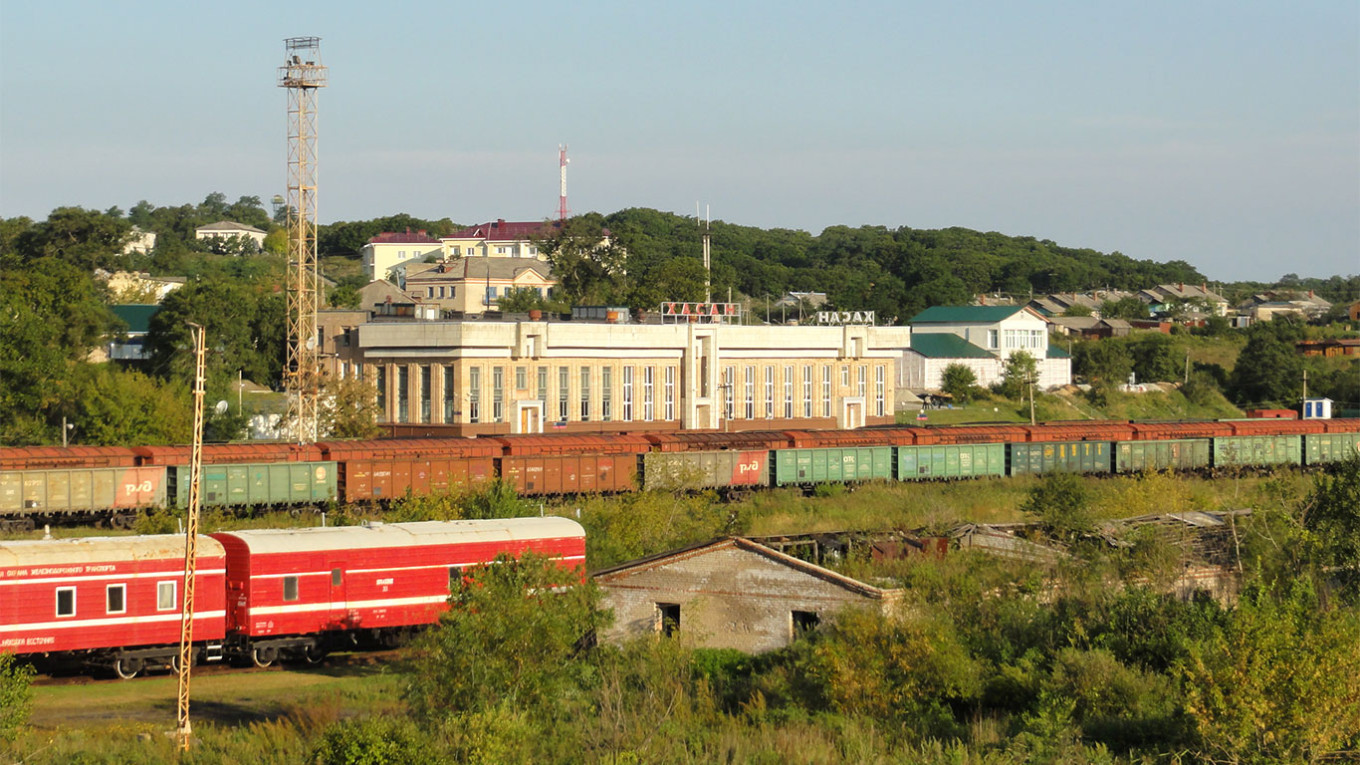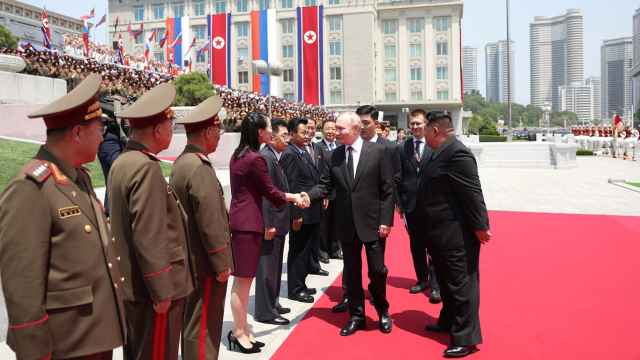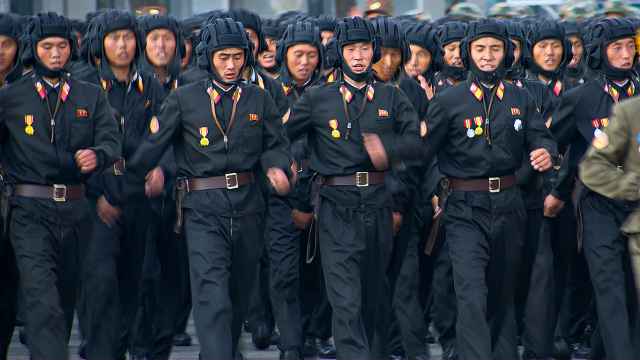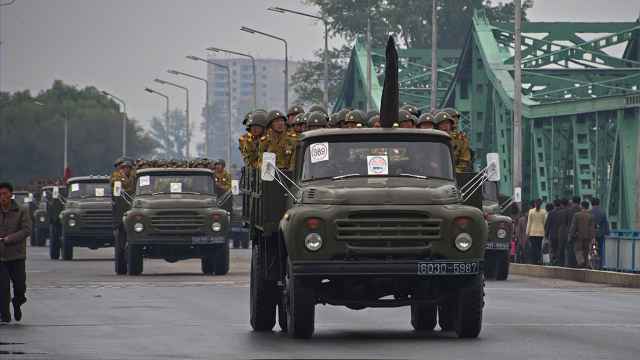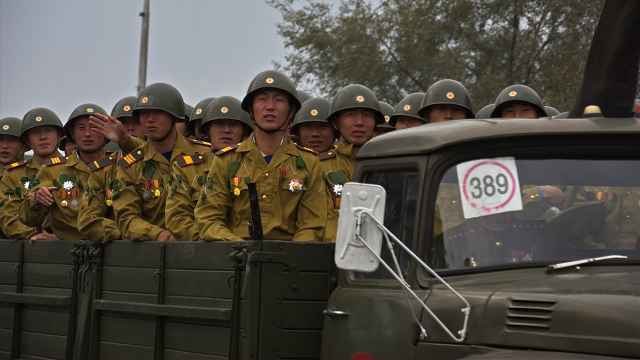North Korea and Russia have resumed cross-border railway trade, ending a two-year hiatus caused by Covid-19 border restrictions, media reported Wednesday.
Russia’s Interfax news agency reported that the first freight train carrying 30 thoroughbred horses has departed for the country's only border crossing with North Korea, Khasan-Tumangang.
Russian federal customs service data viewed by The Moscow Times said North Korea had imported 138 horses at a cost of $584,302 between 2010 and 2019.
Twelve Russian horses, which have great symbolic power in North Korean mythology and political culture, and ponies were delivered to North Korea in 2019 alone.
Russia’s Far Eastern Railway told Interfax that the next rail shipment to North Korea is expected to deliver medical goods. It did not specify the date of future supplies.
North Korea was one of the first countries to seal its borders in January 2020 despite not officially reporting any Covid-19 infections for more than two years.
Russia continued to deliver food and medicine to the insular state before bilateral trade plummeted to near-zero in October 2021.
Russian customs officials last week blamed UN sanctions on North Korea, one of the world’s poorest countries, for the “complete stop” in Moscow's bilateral trade with Pyongyang.
South Korean media focusing on the North reported last month that Pyongyang had launched preparations to open new trade offices across Russia to expand wheat flour and energy imports.
Previous reporting by the Seoul-based Daily NK suggested that North Korea had imported wheat from Russia in August and gas in October in return for support for the Ukraine invasion.
North Korea was one of the five countries that voted against a UN resolution condemning Moscow for its February 2022 invasion of Ukraine.
Pyongyang in July became the third country to recognize Ukraine's Donetsk and Luhansk regions as independent states, following President Vladimir Putin's recognition of the separatist-controlled breakaway states.
Putin annexed those regions in late September, along with two other partially occupied Ukrainian territories, in a move widely condemned by Ukraine’s Western allies.
North Korea was also reported to have expressed readiness to send workers to Donetsk and Luhansk to aid in their reconstruction from the war.
A Message from The Moscow Times:
Dear readers,
We are facing unprecedented challenges. Russia's Prosecutor General's Office has designated The Moscow Times as an "undesirable" organization, criminalizing our work and putting our staff at risk of prosecution. This follows our earlier unjust labeling as a "foreign agent."
These actions are direct attempts to silence independent journalism in Russia. The authorities claim our work "discredits the decisions of the Russian leadership." We see things differently: we strive to provide accurate, unbiased reporting on Russia.
We, the journalists of The Moscow Times, refuse to be silenced. But to continue our work, we need your help.
Your support, no matter how small, makes a world of difference. If you can, please support us monthly starting from just $2. It's quick to set up, and every contribution makes a significant impact.
By supporting The Moscow Times, you're defending open, independent journalism in the face of repression. Thank you for standing with us.
Remind me later.


